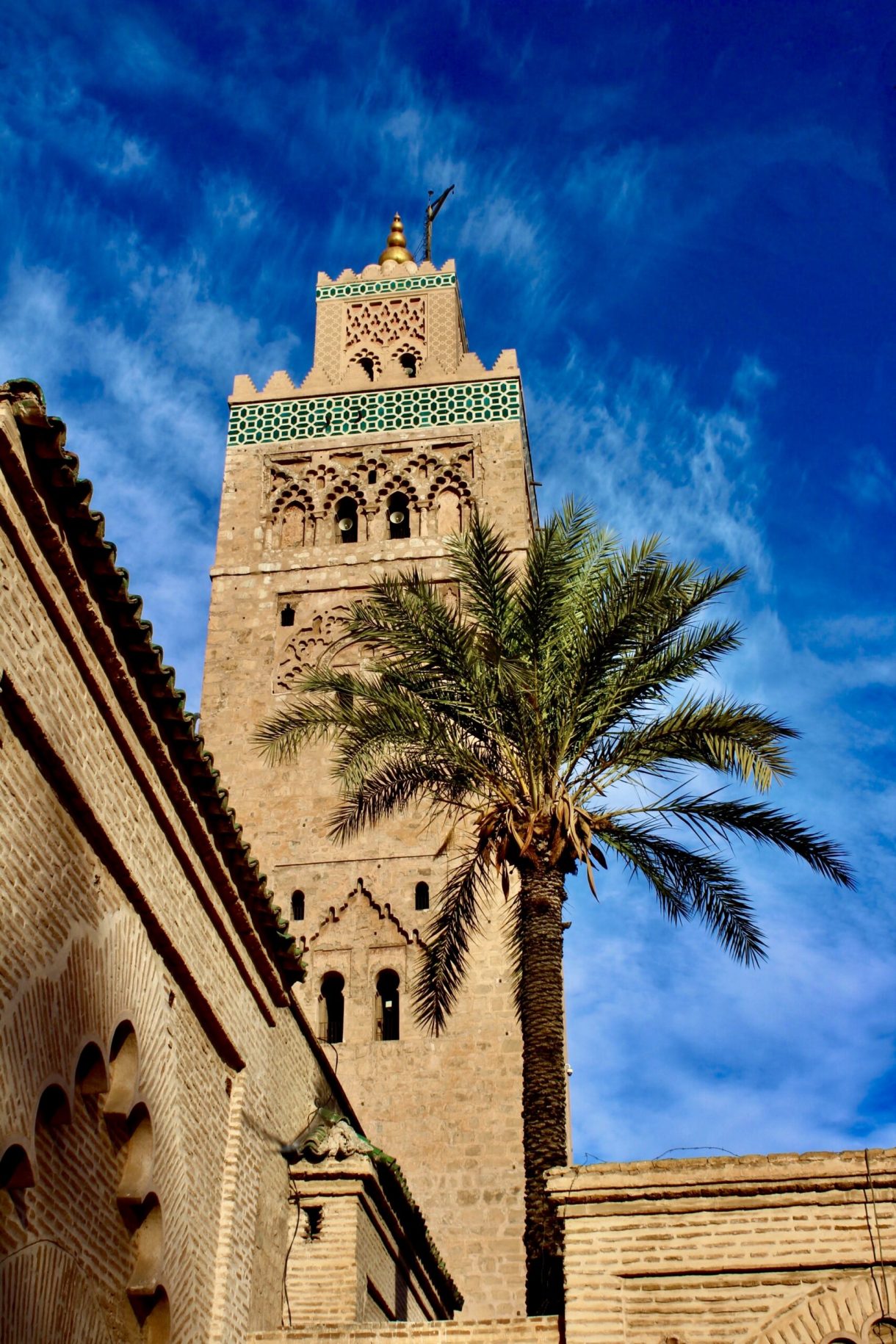
Female Traveller in Morocco – What’s It Really Like?
I absolutely love Morocco. From the charming, quaint mountain villages to the vibrant city markets, Morocco should be on everyone’s bucket list. People often ask me if it was safe to be a female traveller in Morocco. My answer is yes, however, Moroccan culture may take some adjusting to if you haven’t experienced anything like it.
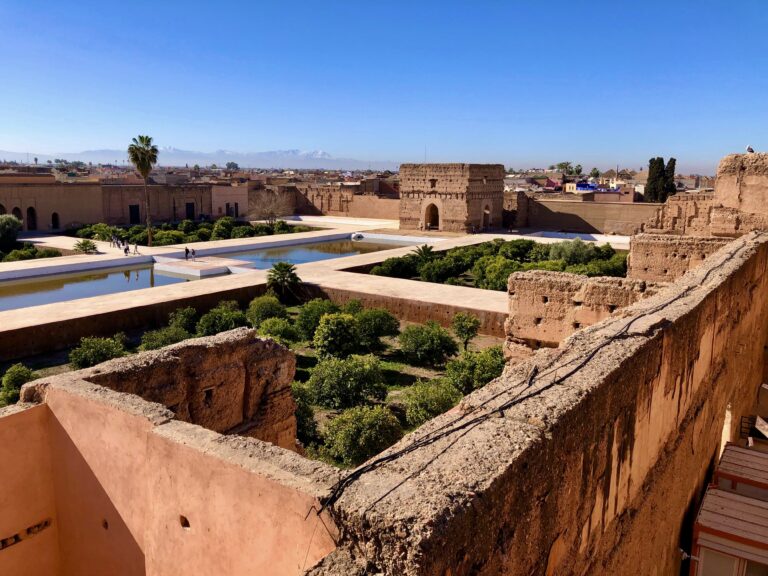
Travelling as a woman can be difficult. There’s so much to consider; how to dress, is it safe, what’s the culture. Before my trip, I’d read so many horror stories about women travellers in Morocco not being treated well at all.
I think I was much more comfortable with the idea of travelling in Morocco because I wasn’t travelling alone. I was meeting a group of friends in Marrakech before setting out to the Atlas Mountains. Our plan was to conquer Mount Toubkal, the highest mountain in North Africa.
Though many women travelling with their partners or friends also reported harassment in Morocco, it seemed to be less than those travelling solo.
Having thoroughly researched the culture, I packed my bags, prepared for the worst. I was expecting constant harassment and was fully prepared for strangers to make comments and try and touch me without consent. Whilst I did experience some level of harassment, it wasn’t so bad as I’d imagined.
Here’s my experience of being a female traveller in Morocco.
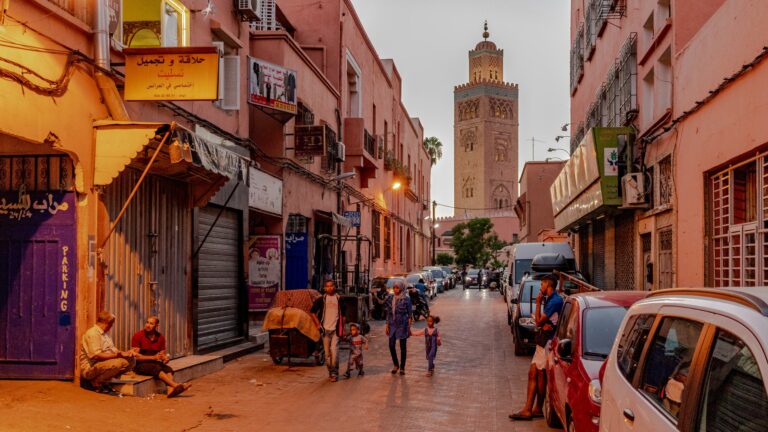
In the City
As in many countries, most travellers will experience some level of harassment when wandering the streets of Moroccan cities.
Marrakech is overwhelming for any tourist – a simple walk through Jemaa el Fnaa (the main square) will show you as much. Women would grab our hands as we walked past and try to sit us down for some traditional but incredibly overpriced henna tattoo art. Men with an array of animals would thrust their shocked creatures upon us, before snapping a photo of our bewilderment and trying to charge us for the privilege. And there was the constant onslaught of people trying to coerce us into restaurants and cafés.
Try escaping into the medina and you’ll find it just as exhausting. Shop owners inside souks shouted as we walked by, trying to pressure us into buying their goods. Locals tried to direct us or ask where we wanted to go. If we accepted their offer of ‘help’, they promptly started demanding payment and making a scene when say no.
This level of harassment can be expected when visiting Morocco, especially in larger towns and cities.
Did this happen to me more often, as a woman?
Well, when I was in a group, no. We were one man and three women, so there were some assumptions we were in a harem. But honestly, most of the comments we received were likening my friend to Ali Baba – he was sporting a rather impressive beard at the time.
When exploring Marrakech in a group, Moroccan men were only ever polite and friendly to me. In most cases, men in the street didn’t interact with us at all. Maybe an odd look now and then, but no comments, no catcalls, and no inappropriate touching.
In fact, most men simply ignored me. In the souks, stallholders much preferred to strike up a conversation with our male friend. Looking back, this seems somewhat sexist. However, I was glad to avoid any sort of harassment at the time and the lack of conversation gave me a chance to browse their wares in peace and pick up some great souvenirs.
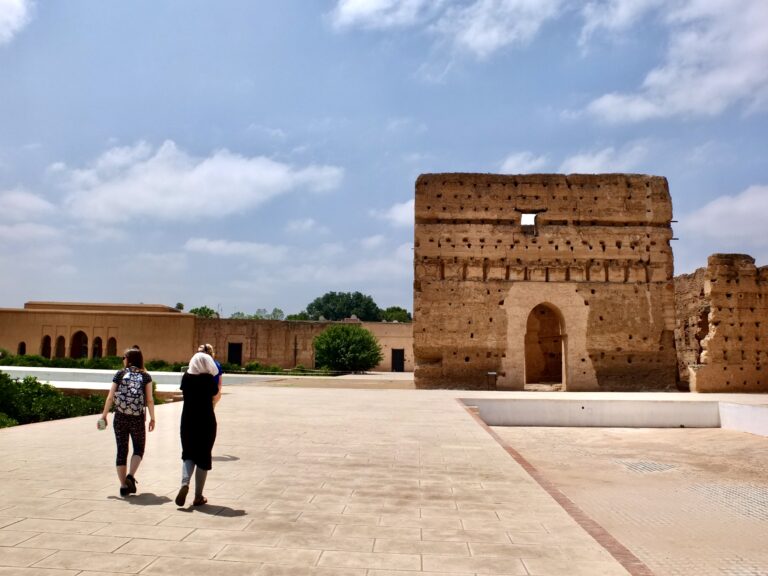
Walking round Marrakech alone or with one of my girl friends was a different matter entirely…
Despite making an effort to dress conservatively, I felt like every man I passed was staring at me. Some of them followed us in the street, asking if I needed help, asking if I needed directions, then called me a b*tch if I ignored them. One man even went so far as to directly approach me, telling me I “have very nice breasts” and asking if he “could touch them”.
I’m no stranger to being hassled on holiday. I’ve visited quite a few countries where tourist = money so I tend to block these sorts of things out. Hiding behind my sunglasses, I rarely make eye contact in the street and I’m pretty good at ignoring people. That said, I was walking arm in arm with my friend when the aforementioned ‘breasts comment’ was made – we laughed so hard she dropped her ice cream!
If you’re relatively difficult to sway and have a good sense of humour, being a female traveller in Morocco isn’t so off-putting. It was definitely exhausting, but not as awful as I’d expected – particularly in Marrakech.
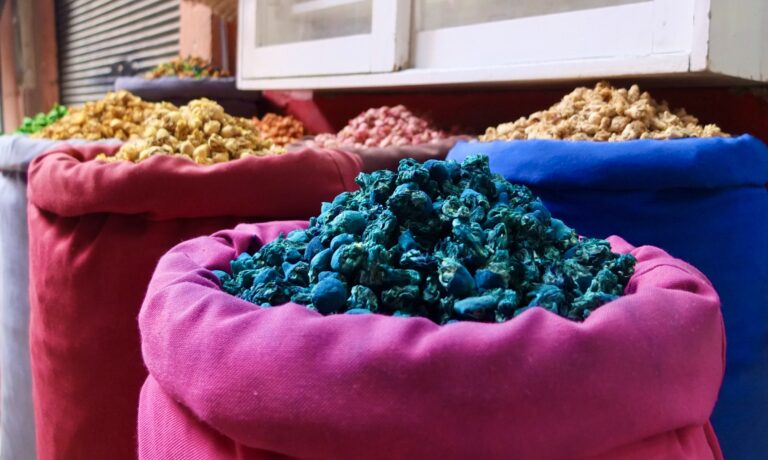
In the Country
After a few days in Marrakech, we set off to the Atlas Mountains.
My experience of being a woman traveller in rural Morocco was the complete opposite of that in the city. Maybe it’s because I was such a sweaty mess trekking in 40°C heat that no one could possibly find me attractive. But away from the streets of Marrakech, I found nothing but genuine kindness from local Berber people.
Here, I was able to connect with the culture on a whole new level. We discussed traditions whilst tucking into plates piled high with traditional tagine. I shared Moroccan mint tea with our guide who told me enthusiastically about his engagement to a woman from his hometown. We joked about how many camels I was worth – apparently my value is far higher than this Camel Calculator estimated (give it a go, just for a laugh, eh?). In the mountains, I felt comfortable and at ease as a female traveller in Morocco.
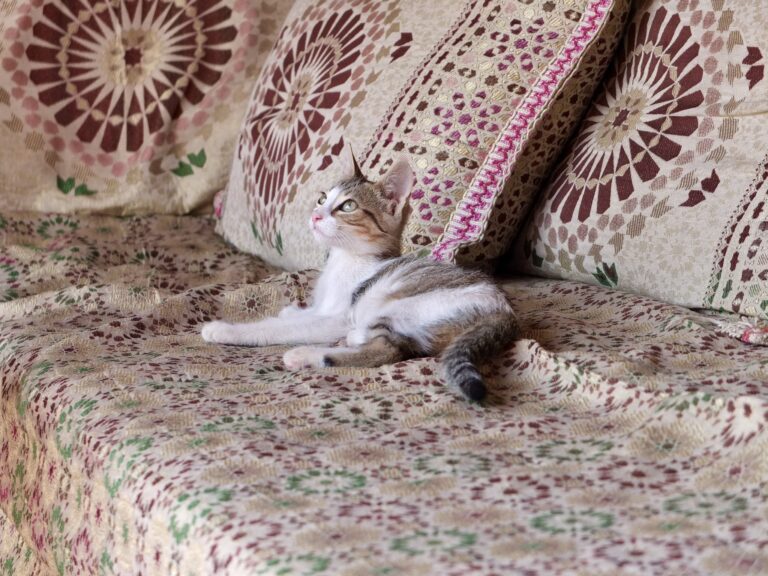
Advice for women travellers in Morocco
We were only in Morocco for a short time, so I can’t claim to be an expert. But I do have some tips and common-sense advice for any woman planning a trip to Morocco.
Look like you know where you’re going
By walking with purpose and looking like you know where you’re going (even if you don’t), you’ll find you get harassed a lot less. If you look like a lost tourist or get your phone out to check Google maps, locals will approach you. They’ll try to take you to your destination and may well make a scene if you don’t pay them, even though payment wasn’t discussed. Try not to engage them. Simply avoid eye contact and say ‘no, thanks’ then walk away with confidence.
When you do need to check Google maps, I recommend slipping into a cafe or restaurant. Get yourself a cup of mint tea – it doesn’t cost much – and familiarise yourself with your route before heading out again. I never like having my phone in hand when I am in a foreign country anyway, I always feel it makes me look like a target for pick-pocketers.
Don't do anything you wouldn't do at home
In the UK, you wouldn’t find me walking alone in an unsafe neighbourhood in the middle of the night. Before visiting any country, you should research the area and make sure your accommodation is in a safe space – Morocco is no exception! Keep an eye out for reviews from other female travellers to get an idea of how they felt.
Make sure you have a safe, well-lit route back to your accommodation at all times. Morocco, particularly Marrakech, has a lot of winding alleyways in the medinas which are poorly lit at night. I felt unsafe walking through these as a group and I definitely wouldn’t want to walk there alone. Although not all experiences in the dark are bad (we did meet some lovely children who excitedly showed us some beautiful hanging lanterns), it’s not worth the risk.
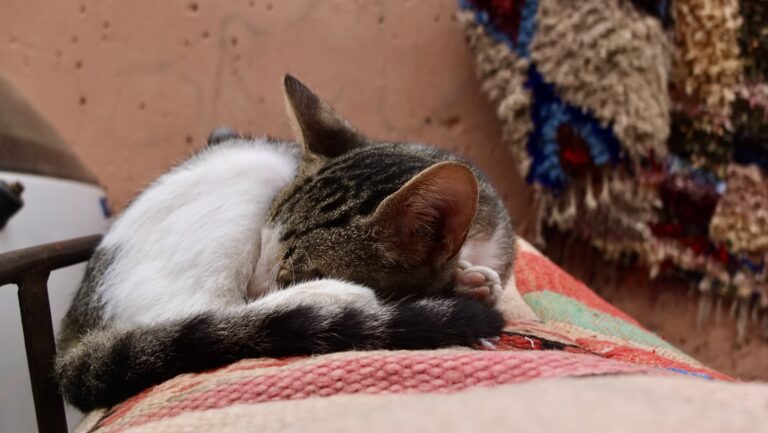
Simply ignore people
I love speaking with the locals because it’s how I embrace a culture. And I hate to give the advice to ignore people. But often engaging with men who hassle you only makes them less likely to leave you alone. Don’t make them feel like they’re worth your time or attention.
Again, I don’t like to generalise. It could be that they are genuinely being friendly or perhaps curious about you, particularly in smaller towns. Sharing cultural knowledge is a wonderful thing, and some locals may just want to know more about where you’re from. But in bigger cities, such as Marrakech, it’s not worth your energy to engage every man who talks to you – there’ll be a lot!
Conserve your energy
It may be because I’m British, but one of my biggest travel weaknesses is my politeness. At the start of my trip, I would offer my attention to anyone who asked for it. I’m curious about other cultures and it’s so nice to talk to local people. But I only have so much energy to go around, and this led to me feeling more and more drained as the day went on.
Remember, you don’t owe anyone anything. It’s ok to simply ignore people, offer am smile, a kind nod, or have a brief chat if it’s someone in a shop or a restaurant before setting some boundaries. Save your energy for exploring and experiencing the places you want to see. There’s so much to do that you’ll need it!
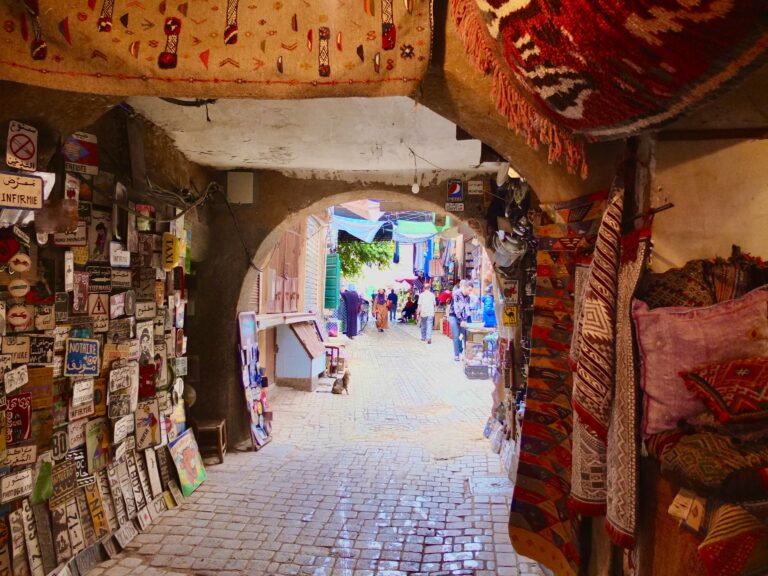
Find sanctuary
No matter how hard you try, being a female traveller in Morocco can be exhausting and over-stimulating. This is why it’s important to have sanctuaries where you can hideout.
In Marrakech, I recommend staying somewhere you feel comfortable in. There are so many beautiful and reasonably priced Riads across the city with terraces, rooftops, and pools where you can relax. If you’re staying for a while, get to know some local women in the area. They’ll look out for you.
Most cafes and restaurants in Morocco have terraces that provide instant relief from the stress of the streets. Slip inside for a mint tea or hot coffee and look down on the city for a quick escape.
Palaces, gardens, and museums open to tourists are wonderful havens to escape harassment, particularly if you have to pay to enter. You could also spend time in the local Hammam. These gender-separated public bathhouses are a safe, sacred space to spend time with local women and experience the culture of Morocco away from the harassment of the streets.
What to wear in Morocco
It’s important to respect the culture of any country, and Morocco is no different! In Morocco, women usually dress quite conservatively. Most choose to wear clothes that will cover at least their shoulders and knees, no matter how high the temperatures soar. I can’t promise you that dressing conservatively will guarantee that men don’t comment or harass you, but it’ll certainly help.
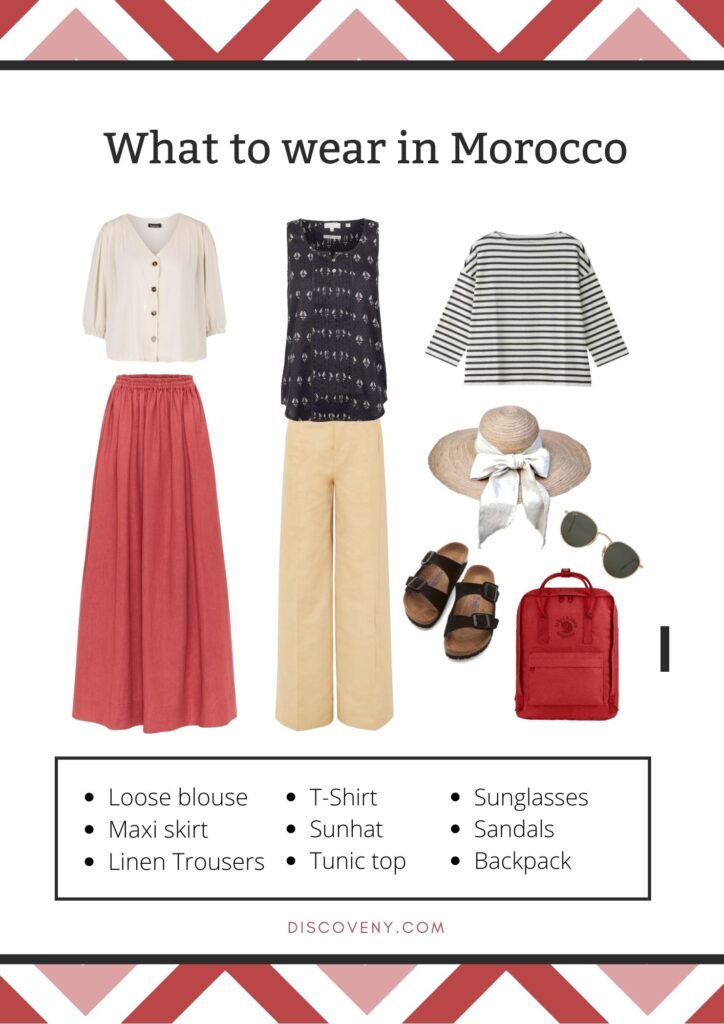
In Morocco, I wore long linen trousers or yoga-style harem pants, button-up shirts, and tunics that covered my bottom. We visited in June when temperatures in Marrakech were above 40°C, so I mostly wore loose, breathable clothing made from natural fibres.
Should you wear a headscarf? It’s honestly up to you, no one will expect it. However, this was something my friend chose to do, as she had read that foreign female travellers got hassled less when covering their hair. This did appear to be the case, however, many locals did comment on it and were curious about her religion and beliefs.
Although I dressed conservatively, I didn’t completely escape harassment. I’m blonde with blue eyes and tend to stick out like a sore thumb when I travel outside of the ‘west’, so I’m somewhat used to it. However, I saw tourists wearing vest tops and shorts and they were faring significantly worse than I was.
When deciding what to wear in Morocco, the best guide is to note what the locals wear, and dress likewise. As usual, some cities will be less conservative than others, so it’s best to take your cue from the people around you.
Is Morocco Safe for Female Travelers?
My verdict is yes, absolutely. Being a female traveller in Morocco is as safe as anywhere else so long as you have some common sense and remain vigilant. The main crimes you need to watch out for are pickpockets and scams. These aren’t gender-specific and unfortunately happen in most major tourist cities worldwide.
It’s not that I felt unsafe in Morocco, but the constant harassment can be annoying and downright exhausting. As a female traveller in Morocco, you’ll need to have your guard up. Sadly, even for local Moroccan women, sexual harassment is an ongoing issue.
Disclaimer: The information and advice provided in this blog are the author’s opinions and based on their personal experiences. All information was accurate at the time of writing. However, things can change quickly, so always double-check current conditions and guidelines before setting out. Remember, your travels and safety are your own responsibility, and this blog can not be held responsible for anything that might happen on your adventures! Always exercise caution and good judgment. Oh, and don’t forget to get travel insurance! Happy travels!
This post may contain affiliate links (yay for transparency!) This means that I will earn a small commission, at no additional cost to you, if you click the link and choose to buy the product. I only link to stuff I have personally bought and found useful and never endorse crap. Your support helps keep the site going, thank you!
Alice
Alice is a UK travel blogger who advocates sustainable travel and being more eco-conscious on a budget. She loves coffee, her houseplants and summiting mountains.
You May Also Like
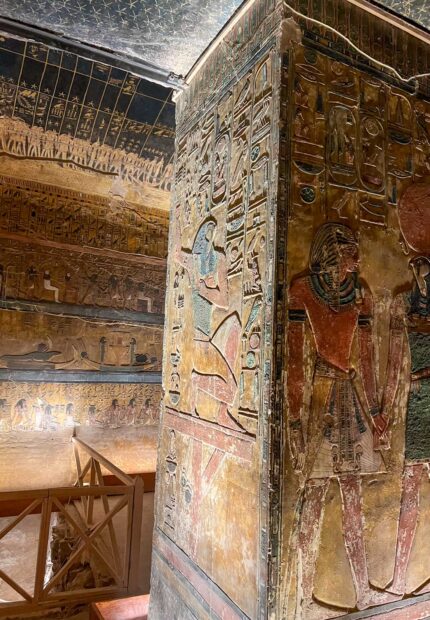
Tomb of Seti I: Is it worth the money?
July 13, 2024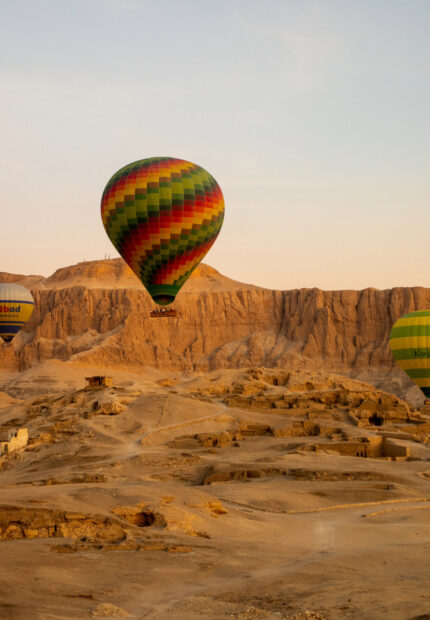
The ULTIMATE guide to Hot Air Ballooning in Luxor
July 20, 2024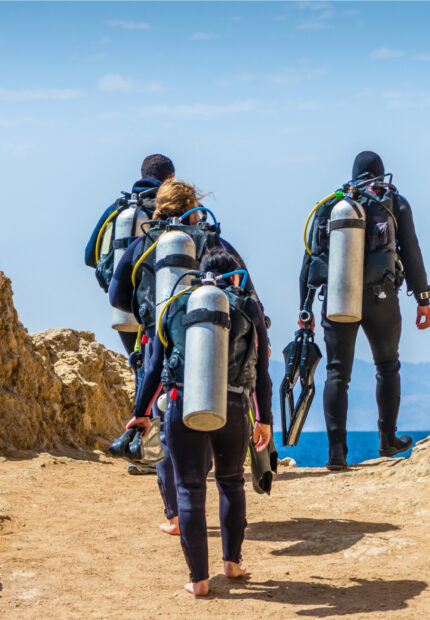
4 Comments
Zoe
I would love to visit Morocco 🇲🇦 Looks like a magical place! Excellent tips for females – this is the one worry I have about travelling alone so it’s always nice meeting people while there.
Alice
It’s just beautiful, such a vibrant place. Just don’t visit in July, when it’s hot hot hot :’)
Morocco Trips
WOW!!!!!!!!!!!
Its an excellent post, thank you so much for sharing with us. I hope you keep sharing this types of informative posts.
Idir
Wow, awesome article! Moroccon is an excellent place. Thank you for sharing.